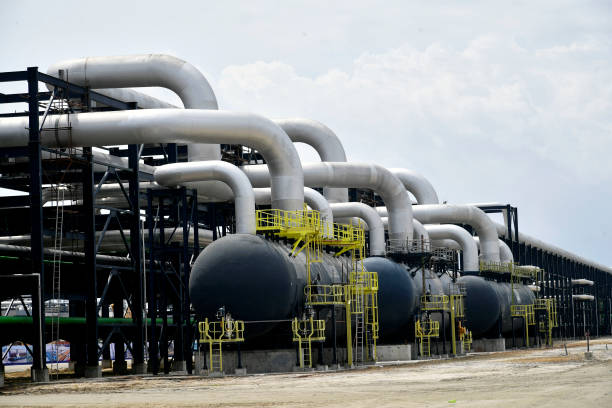.400 dormant oil fields identified, 306 wells drilled
Despite Nigeria’s inability to grow its oil reserves and production beyond pre, Petroleum Industry Act (PIA) levels, the Nigerian Upstream Petroleum Regulatory Commission (NUPRC) has announced that the country has recorded $39.98 billion worth of investments from 79 approved Field Development Plans (FDPs) in the last two years.
Nigeria’s oil reserves currently stand at 37.2 billion barrels, virtually the same level as over a decade ago, despite long-standing government aspirations to reach 40 billion barrels. The PIA, signed into law four years ago, was expected to catalyse renewed investments and efficiency in the sector, but the anticipated boost in production and reserves has remained elusive.
Similarly, crude oil production has continued to lag, falling short of earlier records such as the 2.4 million barrels per day (bpd) peak achieved in 2005. The nation currently produces around 1.65 million bpd, according to the NUPRC.
Head, Media and Strategic Communication at NUPRC, Eniola Akinkuotu on Sunday outlined high-impact achievements since PIA was established four years ago the oil sector had witnessed significant changes.
According to the NUPRC, a total of 79 Field Development Plans, 41 approved in 2024 and 38 in 2025 so fa, represent potential investments valued at $39.98 billion. These comprise $20.55 billion approved in 2024 and $19.43 billion in 2025 to date.
The Commission said these new projects show a rebound in capital inflow and confidence in Nigeria’s upstream sector, despite lingering challenges around security, theft, and declining legacy fields.
The NUPRC also disclosed that it surpassed its revenue targets in three consecutive years, exceeding by 18.3 per cent in 2022, 14.65 per cent in 2023, and 84.2 per cent in 2024, despite price volatility and production constraints.
Nigeria’s rig count has surged from just eight in 2021 to 69 as of October 2025, comprising 40 active rigs and 29 others in standby, movement, or maintenance categories. The NUPRC described the 762.5 per cent increase as “a testament to renewed investor confidence” and alignment with President Bola Tinubu’s directive that Nigeria is ready for business.
Akinkuotu said significant improvement in transparency through the full digitalisation of licensing rounds, eliminating human interference and political influence. The Nigeria Extractive Industries Transparency Initiative (NEITI) has acknowledged the process as the most transparent in the nation’s upstream history.
To ensure efficient asset utilisation, Akinkuotu said implementing the PIA’s “Drill or Drop” policy, compelling operators to either explore assigned acreages or relinquish them.
So far, he said 400 dormant oil fields have been identified under the policy, prompting renewed field activity.
The organisation noted that several major divestment deals in 2024, including those involving Agip, Equinor, Mobil, and Shell, collectively valued at several billions of dollars. The regulator said these divestments represent strategic portfolio realignment, with international oil companies focusing more on deepwater assets while indigenous firms expand their onshore presence.
To further implement the PIA, the NUPRC said it developed 24 new regulations, 19 already gazetted and five awaiting final approval, aimed at fostering transparency, improving fiscal governance, and creating an enabling environment for investors.
Akinkuotu said it has completed the award of flare sites under the Nigerian Gas Flare Commercialisation Programme (NGFCP), expected to attract about $2.5 billion in investments while reducing gas flaring and environmental impact.
NUPRC reported that Host Community Development Trusts have so far remitted N358.67 billion, combining N122.34 billion in naira and $168.91 million in dollars. It also oversees over 536 community projects, ranging from schools and health centres to roads and vocational institutes, across oil-producing regions.
According to the Commission, daily crude oil theft, which averaged 102,900 barrels in 2021, has declined by about 90 per cent to 9,600 barrels per day as of September 2025.
This was attributed to the combined efforts of security agencies, private security firms such as Tantita Security Services, and the introduction of new transparency regulations on upstream measurement and cargo declaration.
Akinkuotu said Nigeria recorded 306 development wells drilled and completed between 2022 to date.






